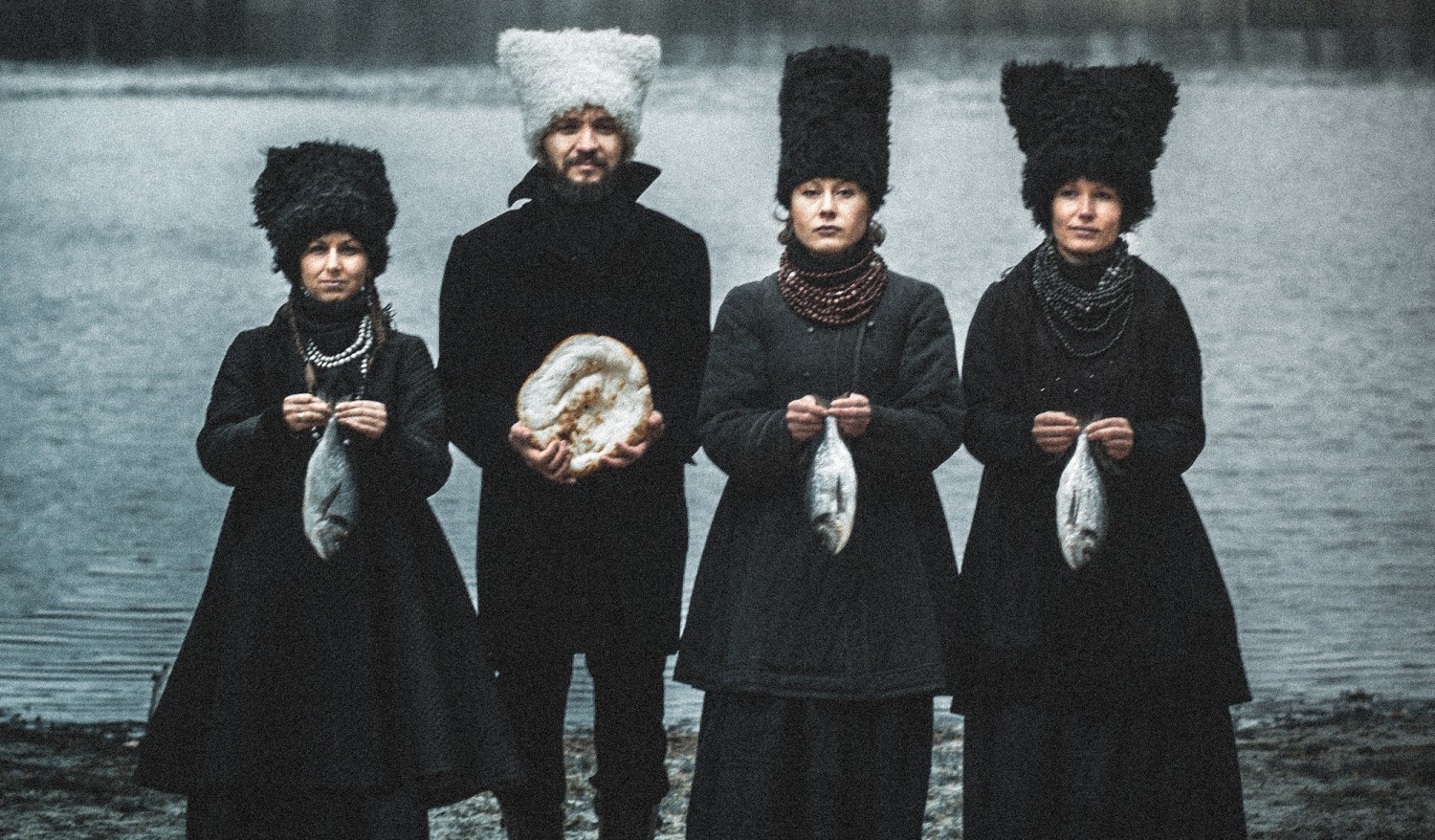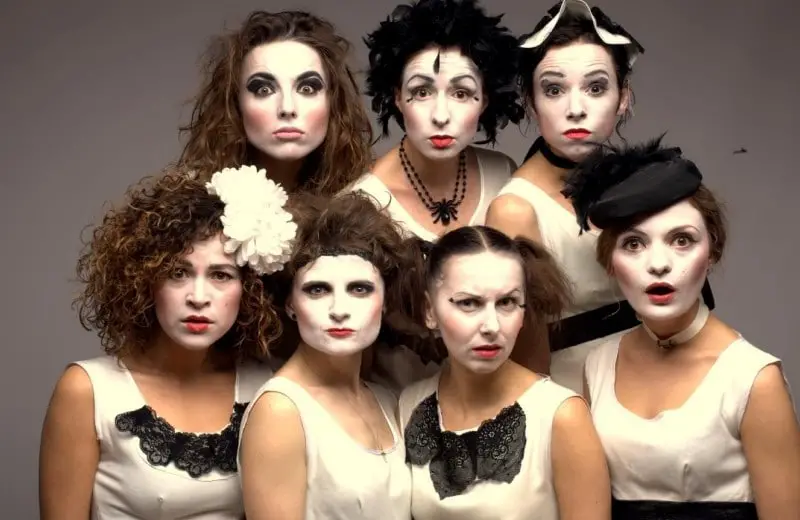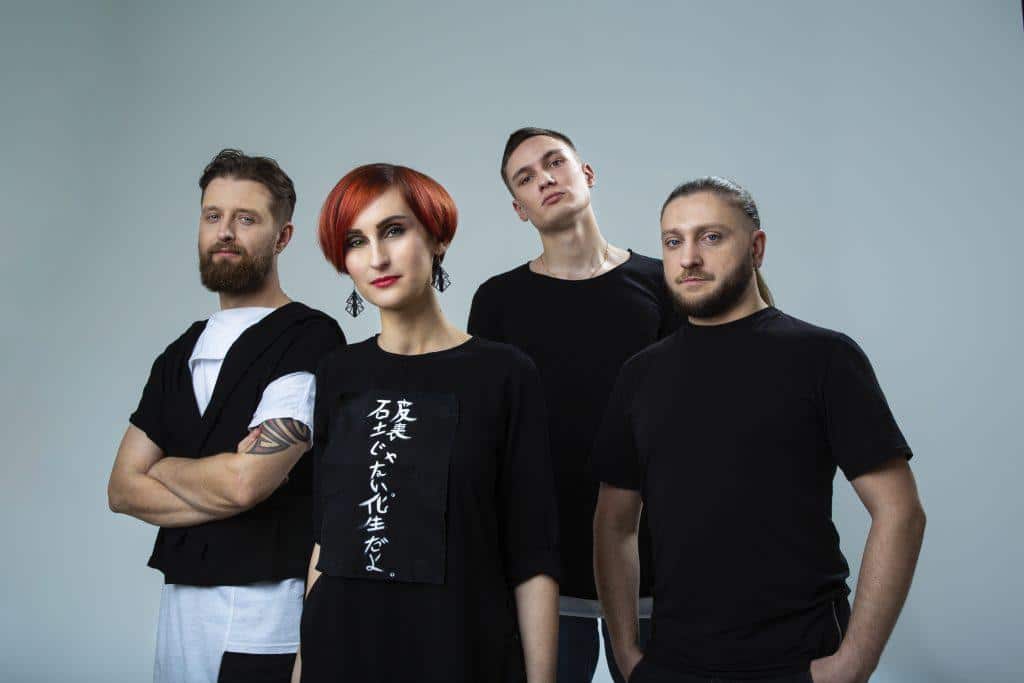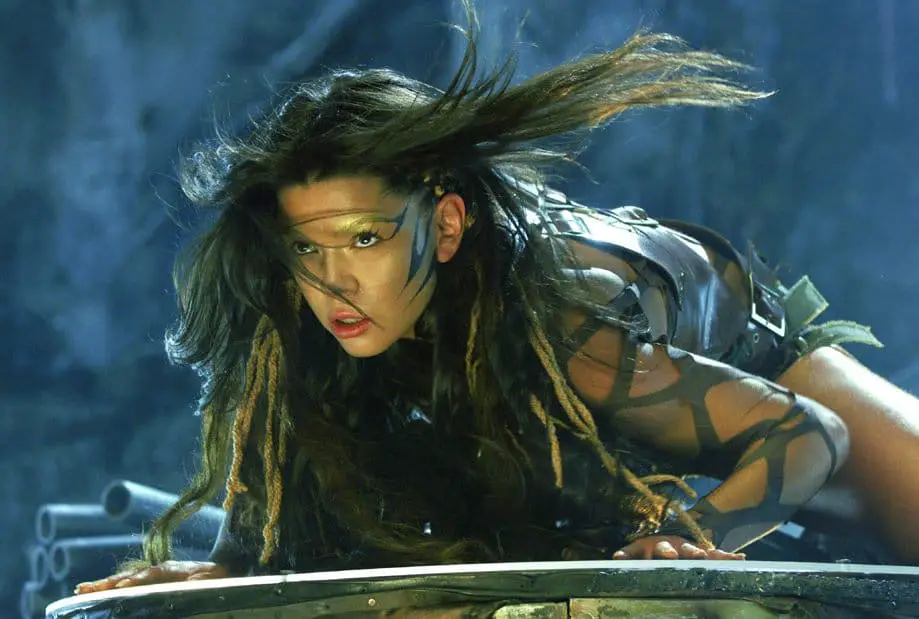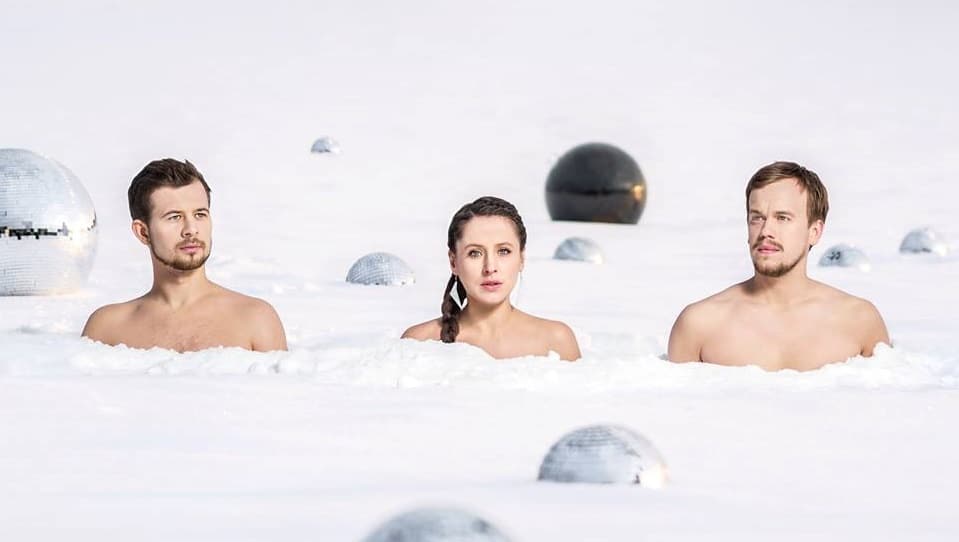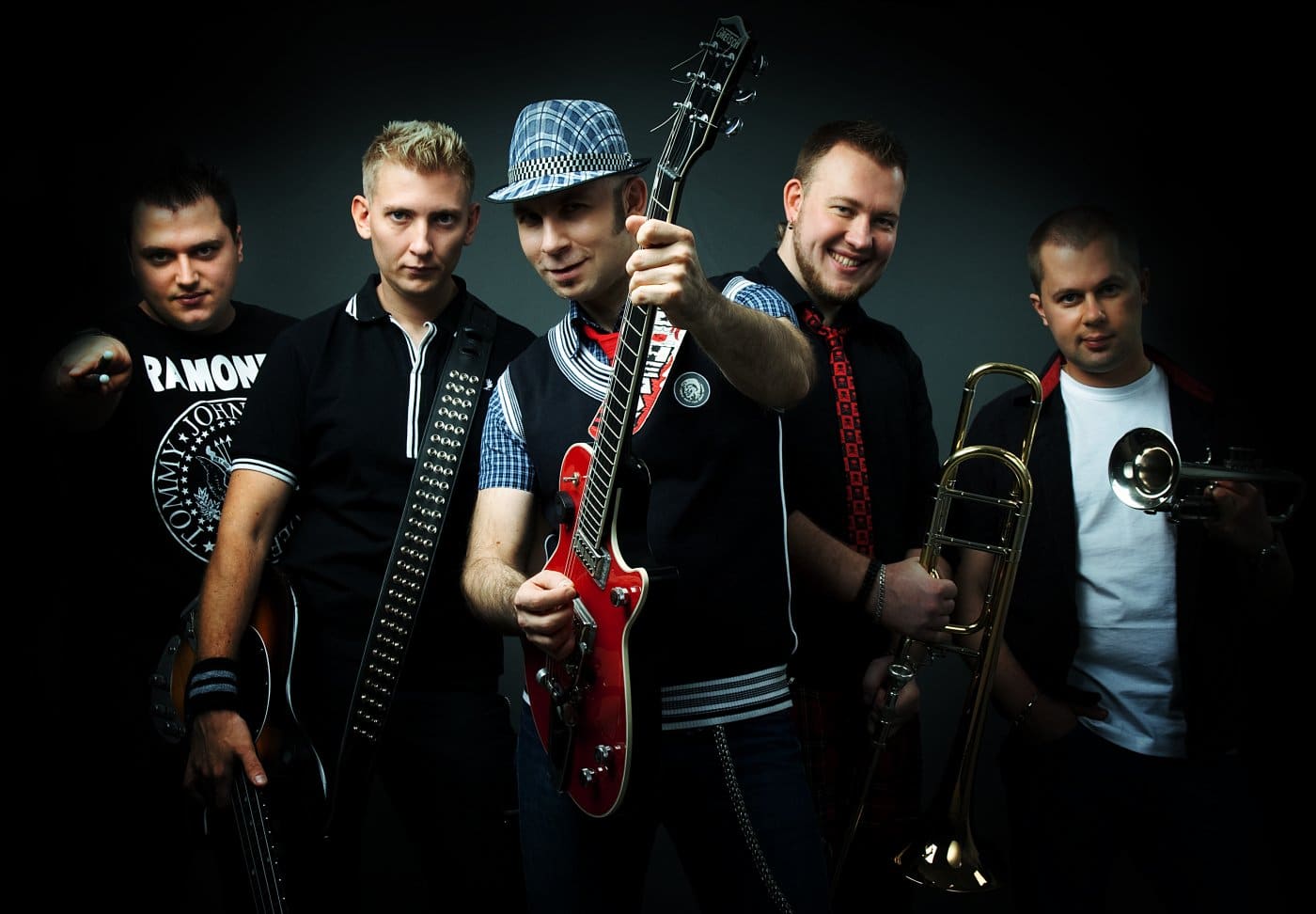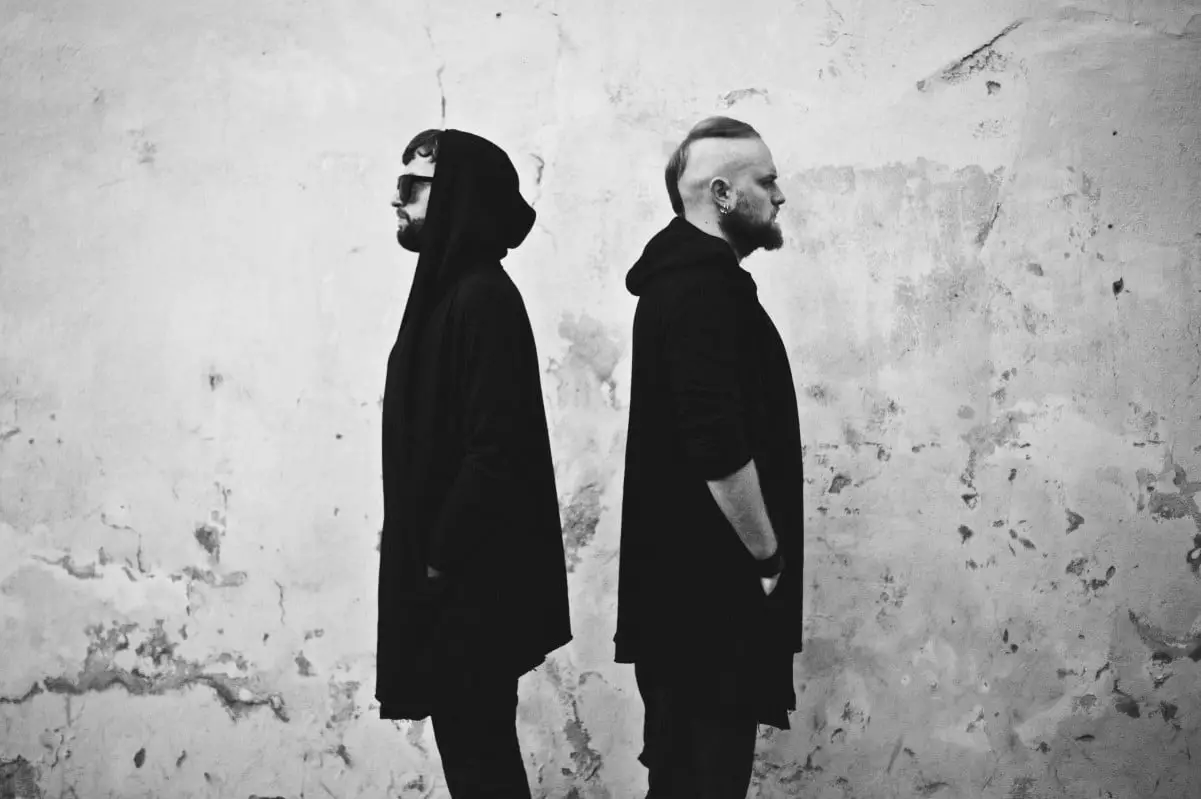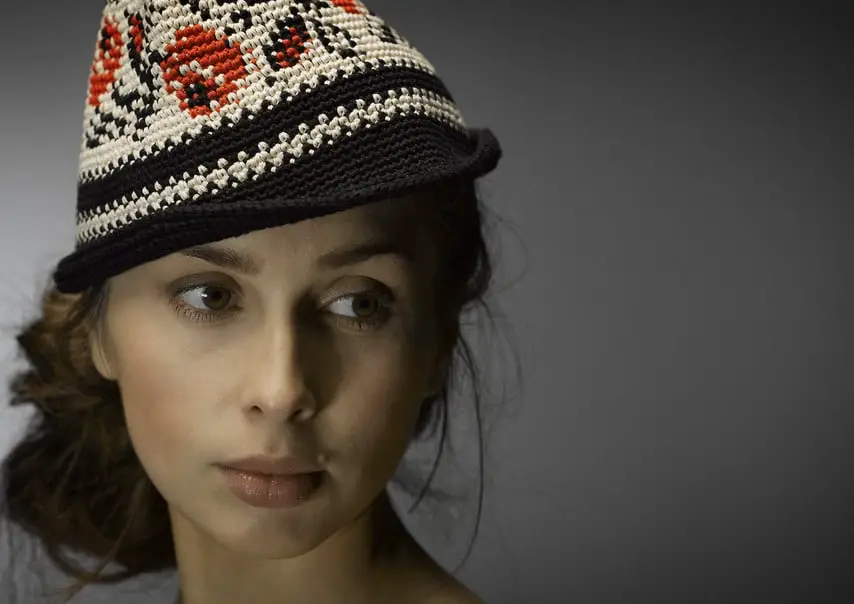DakhaBrakha (ДахаБраха) is a contemporary Ukrainian folk- and world-music quartet. They actually call themselves an “ethno-chaos group.” Its current members are Marko Halanevych (Марко Галаневич), Iryna Kovalenko (Ірина Коваленко), Olena Tsibulska (Олена Цибульська), and Nina Garenetska (Ніна Гаренецька). All sing and play a variety of traditional folk instruments. Unlike many other Ukrainian bands, they are very much Ukrainian language–oriented—even their website doesn’t have a Russian option. The name can be translated from the Ukrainian as “give/take.” “Dakh” also means “roof” in Ukrainian.
DakhaBrakha’s origins are as unique as its sound. It was formed in 2004 at DAKh (ДАХ), the Kyiv Center of Contemporary Art, by director Vladyslav Troitskyi (Владислав Троїцький), and are still affiliated with the center. From the start of the band’s existence they have participated in folk music festivals—including Bonnaroo in 2014, where they were named the “Best Breakout” of the festival by Rolling Stone. They’ve won some prestigious prizes, most notably the Sergey Kuryokhin Prize (Премия Сергея Курёхина) for contemporary art. They have five albums to their name, the first, Good Night (На добраніч), from 2005 and the most recent, Khmeleva Project (Хмелева project), from 2012.
The band’s sound started out mainly along the lines of modernized Ukrainian folk, but on the way they expanded, bringing in folk sounds from all around the world, including from India, Africa, the Arab world, Australia, and Russia. Yet they’ve made sure to keep their Ukrainian roots at the forefront. Their theatrical origins are also embedded in their style—their concerts are always theatrical and rich.
They also have some extramusical goals: their website notes that they aim to “open up the potential of Ukrainian melodies and to bring it to the hearts and consciousness of the younger generation in Ukraine.” They have something of a radical spirit as well, hoping to inspire “artistic liberation.”
“Tatar–Brother” (“Татарин-братко”), from their first album:
Lyrics for “Татарин-братко”:
Татарин-братко, татарин
Продав сестрицю задаром
Узяв за єє три города
За русу косу чотири
За біле личко усі п”ять
Чорні брівоньки пошли так
Летів горностай через сад
Де ж воно пір’єчко на весь сад
Збирайте, дівочки, пір”єчко
Зав”єм Галечці вілечко
Вийди ж бо, матьонко, поглєди
Що ж тобі бояри привезли
Привезли скриню й перину
Ще й коханую дитину
“Дубе кучеравы,” from their most recent album, with Port Mone:
Lyrics are not available.

